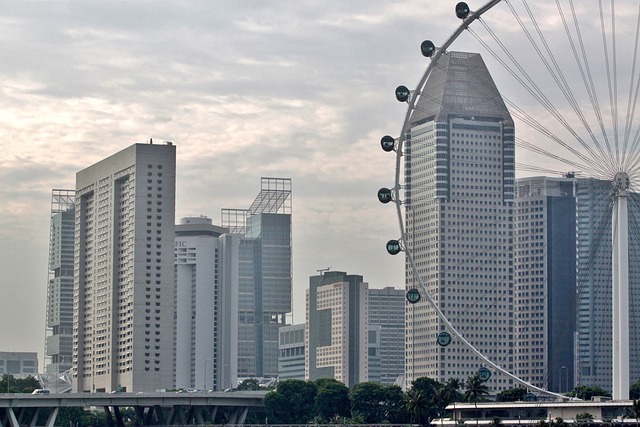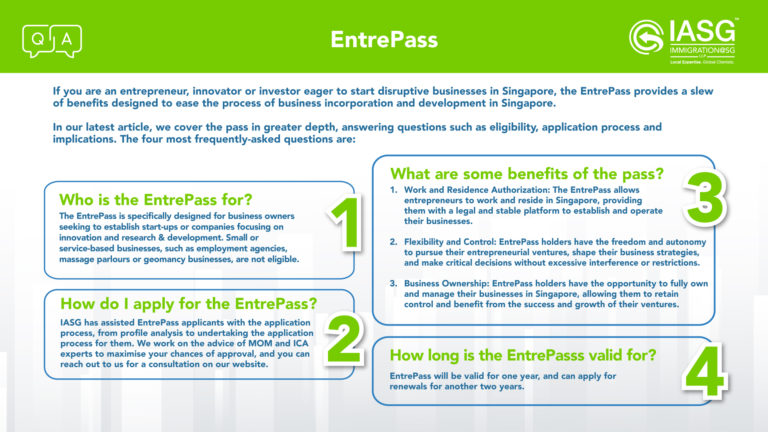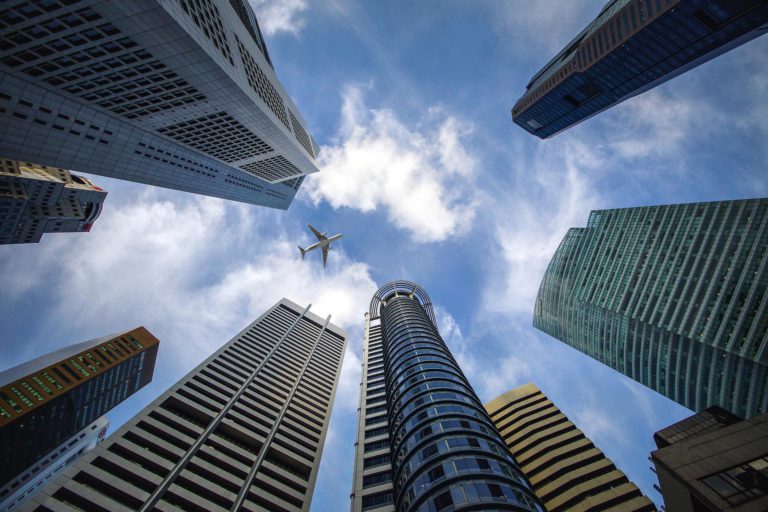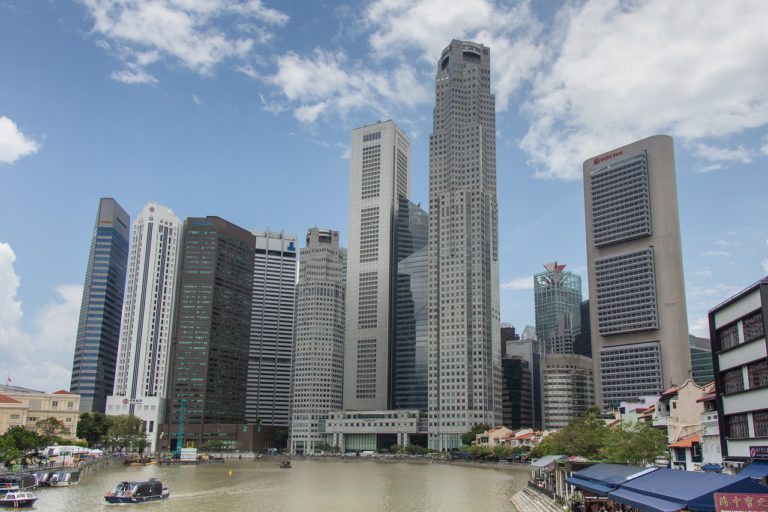Employment Pass Salary Threshold Increased 2024
The Singapore government has been taking initiatives to manage foreign-local job competition and has recently increased the minimum salary threshold for Employment Pass (EP) applicants again.
The minimum salary for all new Employment Pass (EP) applicants will be raised to $5,600, from $5,000 currently. For those in the financial sector, the new minimum salary will be raised to $6,200 a month, up from $5,500 now. The minimum salary for candidates in their mid-40s to qualify will also increase to up to S$10,700, and to up to S$11,800 for those working in financial services. These changes will take into effect from 2025 onwards.
3 Effects of Changes to EP Salary Threshold
-
Reduced Number of EP Holders
With the consistently increasing minimum salary threshold for EPs, there will be a gradual reduction in the number of EP growth. This means that foreigners who want to work and live in Singapore will find it tough to do so and current foreign employees whose EPs are not renewed will lose their chance to continue living in the country. This has caused some EP holders to apply for Singapore PR. Singapore PR holders have the flexibility and freedom to work and live in Singapore without being tied to their jobs.
-
Increased Specialised, Top Tier Foreign Talent
Singapore has been actively attracting top-tier talents from around the world to help boost its economy, especially in emerging and growth industries such as advanced technology, financial services, and advanced manufacturing. Rapid increase in demand for tech professionals in AI, cybersecurity, and web3 technologies forces the government to quickly scout for top talents. These top talents are expected to not only lead Singapore-based companies towards high growth and profitability but also transfer their skills and knowledge to the locals. Singapore’s specialised Work Passes such as the Tech.Pass and ONE Pass are available for these top talents to come and work in Singapore.
-
Increased Employment Opportunities, Promising Career Progression & Longevity for Locals
Singaporeans can benefit by upskilling themselves and/or switching careers into these emerging and growth industries to take advantage of these opportunities. With the leadership of international top talents, career progression for locals is promising. Furthermore, with Singapore’s ageing population and unprecedented low birth rate paired with increasing inflation and living expenses, locals can expect to stay employed and earn a stable income beyond the retirement age. This is another goal of the Singapore government – to tap on the silver workforce to maintain its economy.
Number of EP holders in the Past 10 Years
Collectively, between 2013 and 2023, the number of EP and S Pass holders only grew by 50,000 while the number of resident professionals, managers, executives and technicians (PMETs) increased by 380,000. As pointed before, this is to ensure that these Work Pass holders are of high-quality to maintain a level playing field for locals.
The main reason for the increase in the number of PRs and citizens would most likely be due to foreigners who were holding S Passes and EPs converting to become PRs and citizens. By a simple calculation, the number of resident PMETs increased by an average of 38,000 per year between 2013 and 2023. This calculation is based on the assumption that 100% of the PMETs that make up the increase are foreigners. With an estimated 30,000 Singapore PR and 20,000 Citizenship approved each year, these PMETs make up 76% of the total PR and citizenship approvals. This means that:
- Singapore highly values quality talent and is actively attracting talented foreigners to come to Singapore to work and accepts them into the Singaporean core as PRs and citizens later on.
- The remaining 24% of total PR and citizenship approvals might come from foreigners who are not PMETs.
Foreigners who aim to migrate to Singapore may use this simple illustration to visualise their pathway into the country. A good strategy would be to carve a career in the emerging and growth industries and obtain skills and knowledge that are not readily available yet highly in-demand in Singapore. For enquiries on Work Passes, Singapore PR, or Singapore Citizenship applications, please call +65 6493 1830 or email to info@iasg.com.sg.
Challenges for Businesses
-
Difficulty in filling up job vacancies
Getting the right talent at the right price while factoring in the eligibility of candidates to legally work in Singapore can be tough. The local workforce is not only small but also not yet ready to take on the markets competitively, much less lead international corporations in the global market.
-
Increased Overhead Costs for Manpower
Businesses will have to spend more on employment as Singapore is moving towards a skilled workforce. Apart from the government’s push for quality foreign talent, it is also pushing for Singaporeans and PRs to upskill or switch careers to jobs in the growth industries such as healthcare, technology, and financial services. Locals understandably expect higher salaries because of this, not just to fulfil their career aspirations but also to mitigate the rising inflation and living costs.
-
Making Use of Loopholes
Some companies have been found to illegally hire foreigners in various ways such as hiring without proper Work Passes and salary paid is not what was declared to the authorities. While some have been caught, there are sure to be many others.
However, the government has recently announced an initiative to help reduce business costs for small-medium enterprises (SMEs). It is still in development but it shows Singapore’s dedication to a business-friendly environment, thus continuing its attractiveness for jobs and business opportunities.
Overall Effects on Singapore’s Workforce
Singapore has been transitioning towards a skilled workforce and moving into being a Smart Nation where technology is the driver at all levels. It is more difficult for foreigners to work in Singapore as the opportunities have now shifted toward more specialised skills. However, both employees and businesses can still take advantage of Singapore’s economy and favourable business environment and opportunities. Opportunities such as retail services, f&b, and hospitality are still in high demand due to the lack of interest by the locals.
Business owners who want to expand their business into Southeast Asia and greater Asia, can contact Immigration@SG at +65 6493 1830 or email to info@iasg.com.sg for more information.







